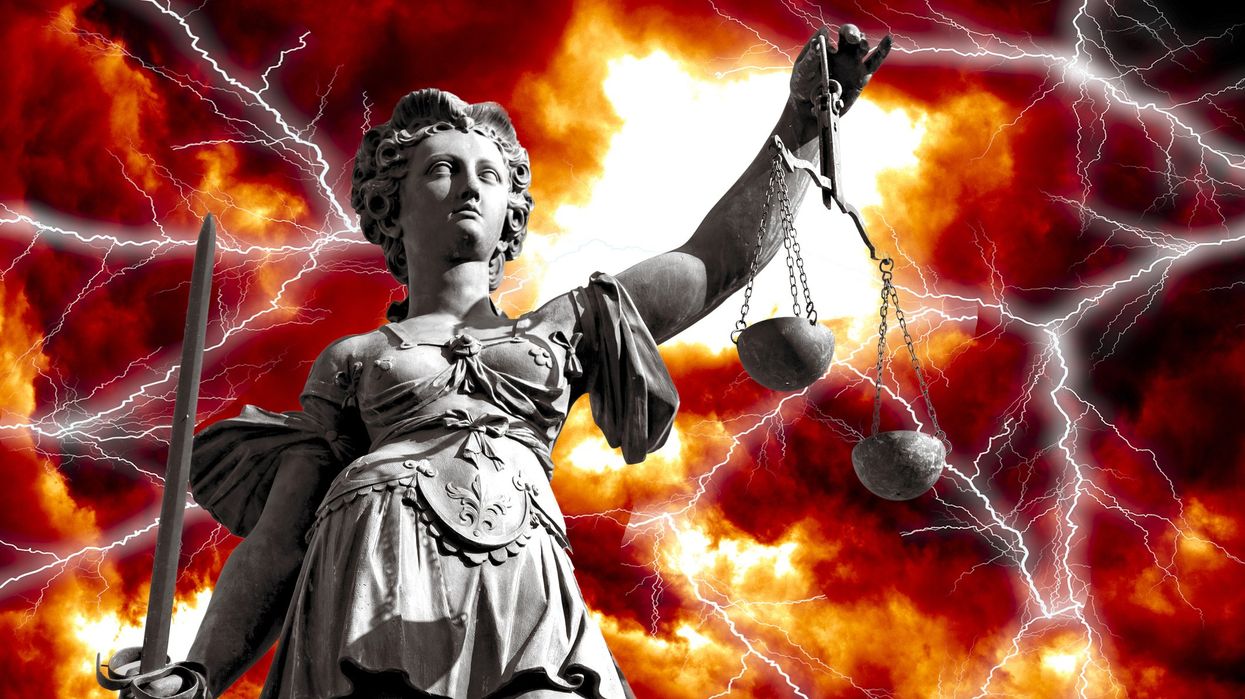
Frank Wagner/Getty Images

The left discovered Section 11(b) of the Voting Rights Act may be an effective weapon to fight election integrity efforts.
Congress passed the Voting Rights Act in 1965 to end racial discrimination in voting primarily in the South. Among other things, the law ended the use of literacy tests to exclude people from voting, imposed “preclearance” requirements for new voting rules in certain states, and required ballots and election information to be printed in languages other than English. The VRA is credited with vastly expanding black voter registration and participation, particularly in the South. The law was originally designed to sunset after five years but went through a series of extensions and amendments over the decades.
The law also contains language that protects voters from intimidation, threats, and coercion while voting or aiding others to vote. These intimidation provisions are now being used as a weapon to fight against election integrity. Allow me to explain.
Until Congress, a federal court, or the U.S. Supreme Court reins in this judicial overreach, you can bet more lawsuits like the one in Georgia are coming.
The intimidation provision of the Voting Rights Act is commonly known as “Section 11(b),” which provides:
No person, whether acting under color of law or otherwise, shall intimidate, threaten, or coerce, or attempt to intimidate, threaten, or coerce any person for voting or attempting to vote, or intimidate, threaten, or coerce, or attempt to intimidate, threaten, or coerce any person for urging or aiding any person to vote or attempt to vote, or intimidate, threaten, or coerce any person for exercising any powers or duties under [other sections of the law].
A plain reading of the law probably would not alarm the average person concerned with election integrity. After all, no one should be allowed to intimidate, threaten, or coerce voters, should they? The problem lies in the way leftists and activist courts interpret “intimidate, threaten, or coerce.”
Intimidate, threaten, and coerce originally had the meaning one might expect, involving actual threats of physical violence often employed by the Ku Klux Klan. Federal courts, however, are beginning to take a more expansive view of what constitutes intimidation, threats, and coercion. In recent years, federal courts ruled that one may “intimidate, threaten, or coerce” a voter under Section 11(b) using words alone, without any threat of physical harm at all. In fact, the use of Section 11(b) gets worse.
In litigation arising out of the January 2021 U.S. Senate runoff elections in Georgia, leftist activists used Section 11(b) to sue election integrity groups and individuals for using available procedures under state law to challenge voter registrations believed to be unlawful. The activists claimed the use of state law, and public statements made by the election integrity activists, constituted “intimidation, threats, or coercion.”
Here’s what happened.
After the 2020 presidential election, evidence came to light that a provision of Georgia law requiring voters to vote in the county where they reside may have been violated by thousands of voters, in excess of Joe Biden’s 11,000-vote margin of “victory.” Election integrity groups and activists took action, using the procedures provided by Georgia law, to challenge some of these voters before the runoff.
The suit involved claims made by Fair Fight, a leftist public advocacy group founded by Stacey Abrams, against a number of parties, including True the Vote, the election integrity group headed by Catherine Engelbrecht.
The Fair Fight plaintiffs claimed, “Any mass challenge of voters near an election (especially if negligently or recklessly made) constitutes intimidation,” as the court described. While the court disagreed with Fair Fight, it did so because the Georgia law in question left it up to the county board of elections to pursue or not pursue any of the challenges.
In the words of the court, the board “intermediary” “breaks the chain of causation for purposes of establishing liability for voter intimidation.” The court also determined the public statements and social media posts made by True the Vote and other defendants did not rise to the level of intimidation.
Nevertheless, while these election integrity activists successfully defended this suit and prevailed at trial, they were forced to endure two years of litigation, including extensive discovery, motion practice, and a trial on the merits — all because they relied upon the procedures provided by Georgia law in an effort to ensure ineligible voters did not vote and because they made public statements in support of those efforts.
Anyone using lawful state procedures to challenge voters and voter registration and exercising their First Amendment rights in the process should not be subject to being sued under the Voting Rights Act.
Until Congress, a federal court, or the U.S. Supreme Court reins in this judicial overreach, you can bet more lawsuits like the one in Georgia are coming. People fighting for election integrity need to get familiar with the Voting Rights Act, retain competent legal counsel, and ensure their every effort is beyond question.
The fight for election integrity is one worth waging, but rest assured the left will fight tooth and nail. The left discovered Section 11(b) of the Voting Rights Act may be an effective weapon. Americans fighting for the integrity of our elections better be prepared to defend against it.
Daniel Street